'We need to always remember': These 5 Black leaders left a legacy in Polk
- Oops!Something went wrong.Please try again later.
As the nation gears up for Black History Month, the elders of Polk County work to continue the legacy of local heroes.
“The memory of their legacy and the pursuit of what they fought and stood for need not be forgotten,” said Pughsville native and historian Patricia Smith-Fields.
Black History Month originally began as Negro History Week in 1926. Historian Carter G. Woodson chose the second week in February to coincide with the birthdays of President Abraham Lincoln and Frederick Douglas.
“If a race has no history, it has no worthwhile tradition, it becomes a negligible factor in the thought of the world, and it stands in danger of being exterminated,” Woodson wrote in The Journal of Negro History published April 1926.

'He helped build Bartow': New book preserves record of L.B. Brown's extraordinary life
History: Grad student searches for evidence of forgotten Black cemeteries in Polk County
Not forgotten: World War II memories remain clear for 100- and 102-year-old Lakeland survivors of 'Greatest Generation'
People such as Ann E. Darby, Lemuel Geathers, L.B. Brown, George H. Gause, and Althea Daily Mills left a lasting impression in the Black community. But the ones telling their stories are concerned that the legacy may fade away.
“Most of them are older people. That’s what’s so frightening because we don’t have any younger people stepping into the fold. All of us are getting old,” said Joyce G. Thurman, a Bartow native and daughter of Gause.

The city of Winter Haven looks to continue the recognition of their local heroes by hanging banners along their parade route. In 2021 banners featuring national heroes such as Dr. Martin Luther King, Jr and Aretha Franklin were hung up. This year, the city chose to recognize Geathers, Darby, Larry D. Hardaway and Ulysses J. Johnson – the city will dedicate a week to each of them.
“The goal is to eventually have all local heroes hanging up,” public works director M.J. Carnevale said at the city’s MLK Unity Luncheon.
Bartow honors mortician and politician Gause alongside King each January with a parade and festival. The L.B. Brown House Museum hosts a festival in Brown’s honor each February.
“We need to always remember what they did, reflect on what they did and to build on what they did to continue to make it better,” said Smith-Fields.
Today, The Ledger takes a look at five prominent figures who helped shape the Black community in Polk County.
L.B. Brown
1856 – 1941
Lawrence B. Brown was born a slave in 1856. He grew up in Alachua County and moved to Bartow with his mother in 1885 after the death of his father.
“He came to Bartow and started building houses. He built up the community we now know as West Bartow,” said LB Brown House Museum curator Clifton Lewis.
Brown built close to 60 houses that were either sold or rented.
In 1892, he built a house that is still standing today. The house is a two-story, nine-room house sitting on 18 tree logs. The house is now a museum and has Brown’s original work ledgers containing contracts.
“His story is not just an anecdote, it’s not just a story. It’s well documented,” Lewis said.
Lewis said that Brown is an inspiration for overcoming adversity.
“He was born into the system of slavery. He overcame it and didn’t look back. He moved forward and found a way to side-step obstacles,” Lewis said.
In 1998, the Florida Department of State gave the honor of Great Floridian 2000 on Brown. In 2016, the story of L.B. Brown and the Historic L.B. Brown House Museum was selected as one of the inaugural exhibits for the Smithsonian’s National Museum of African American History and Culture.
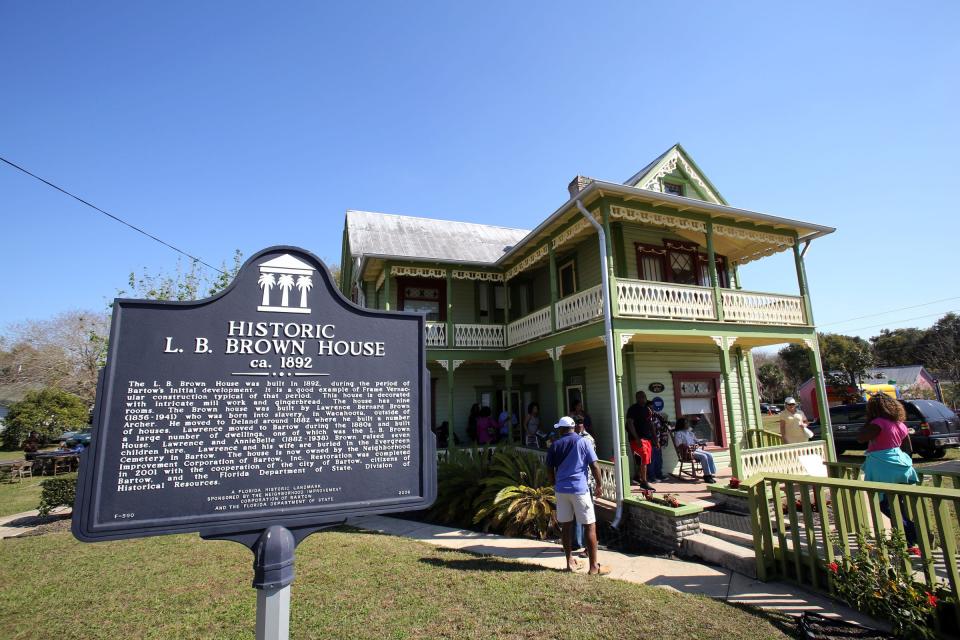
“His legacy is one of an overachiever; he was a man ahead of his time,” Lewis said.
For the past 20 years in February, The LB Brown Museum has hosted the LB Brown Heritage Festival. This year’s festival is Feb. 12 and 13.
Brown was one of seven children. With his wife, Anna Belle, came seven children and one grandson. At the time of his death in 1941, Brown was a member of Mount Gilboa Missionary Baptist Church.
George H. Gause
1920 – 1986
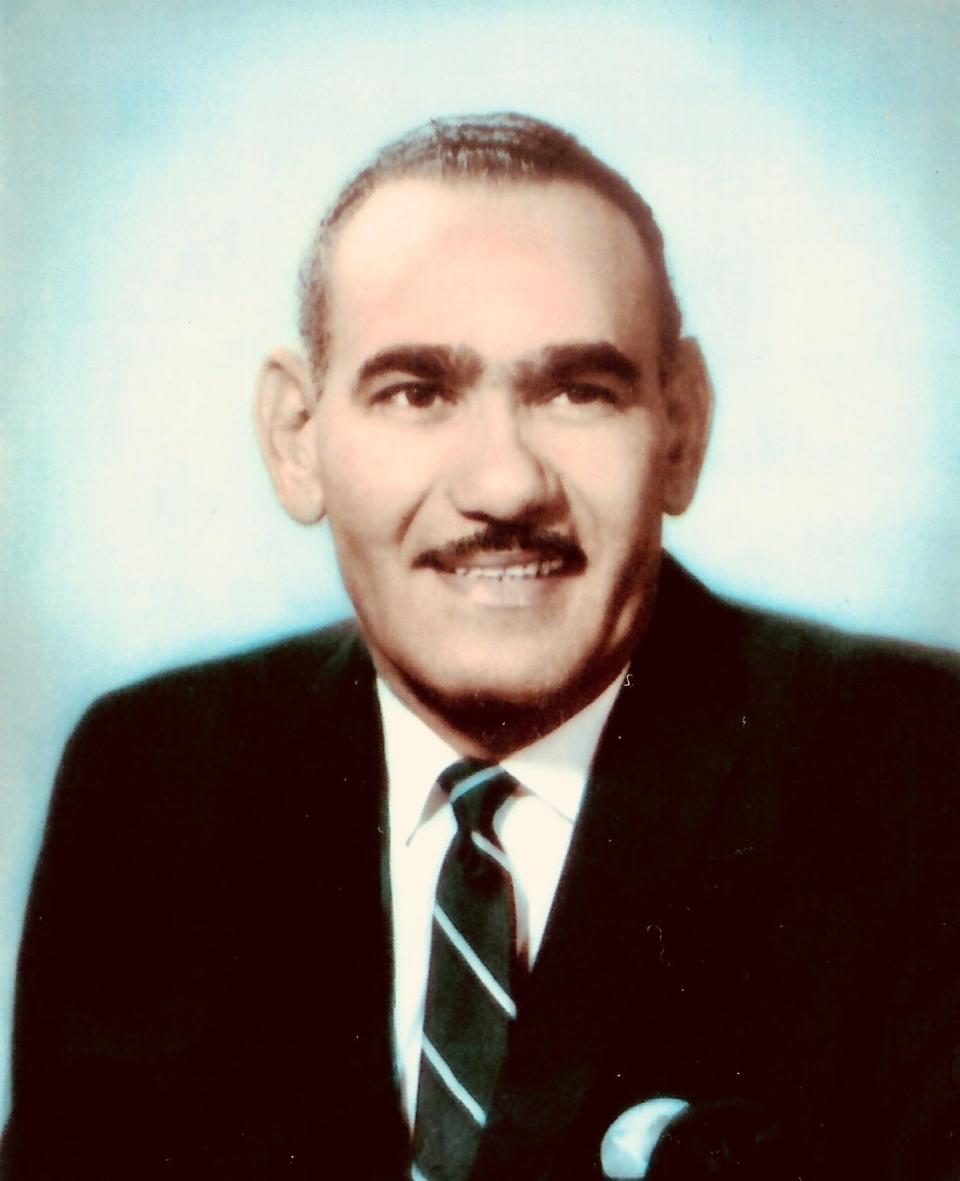
George H. Gause was a mortician and politician in Bartow. He was born in 1920 in Wilmington, North Carolina. In 1928, his family settled in Bartow.
Gause received his education at Union Academy High School in Bartow. He attended Florida A & M University in Tallahassee and Atlanta College of Mortuary Science. He also spent time as a tailoring instructor in the Armed Forces during World War II.
Gause's father, George Henry Gause Sr., established Gause Funeral Home in 1928. After his father’s passing in 1933, Gause’s mother, Marie, ran the funeral home. Gause and his twin sister, Evelyn, later assisted their mother in operating the family business. The funeral home is now owned and operated by his nephew George Ronald Sabb and Sabb's wife, Charlotta.
In 1968, Gause was the first Black person to be elected to Bartow’s City Commission. In 1971, he was sworn in as mayor, making him the city's first Black mayor. According Thurman, newspapers reported he was the first African American in the Southeastern United States to serve in that capacity. In 1977, Gause was appointed to the Polk County School Board District III by Gov. Reubin Askew, becoming the first African American to serve on the Polk County School Board.
Gause was affectionately known as Brother Gause in the Bartow community. He was a member of First Providence Missionary Baptist Church, where he served as the business manager of the trustee board. According to Thurman, her father never met a stranger.
“He would sit on the sidewalk in front of the funeral home. Everyone who walked by would stop and he would hold a conversation,” Thurman said.
Some of Gause's honors include being named citizen of the year by the Lakeland Chapter of Kappa Alpha Psi Fraternity, the Human Relations Award in Education from Florida Teaching Profession-National Education Association. In April 2000, Gause Academy of Leadership and Applied Technology was dedicated. He was inducted into the Polk County Hall of Fame in 2002. There are two streets in Bartow named in his honor.
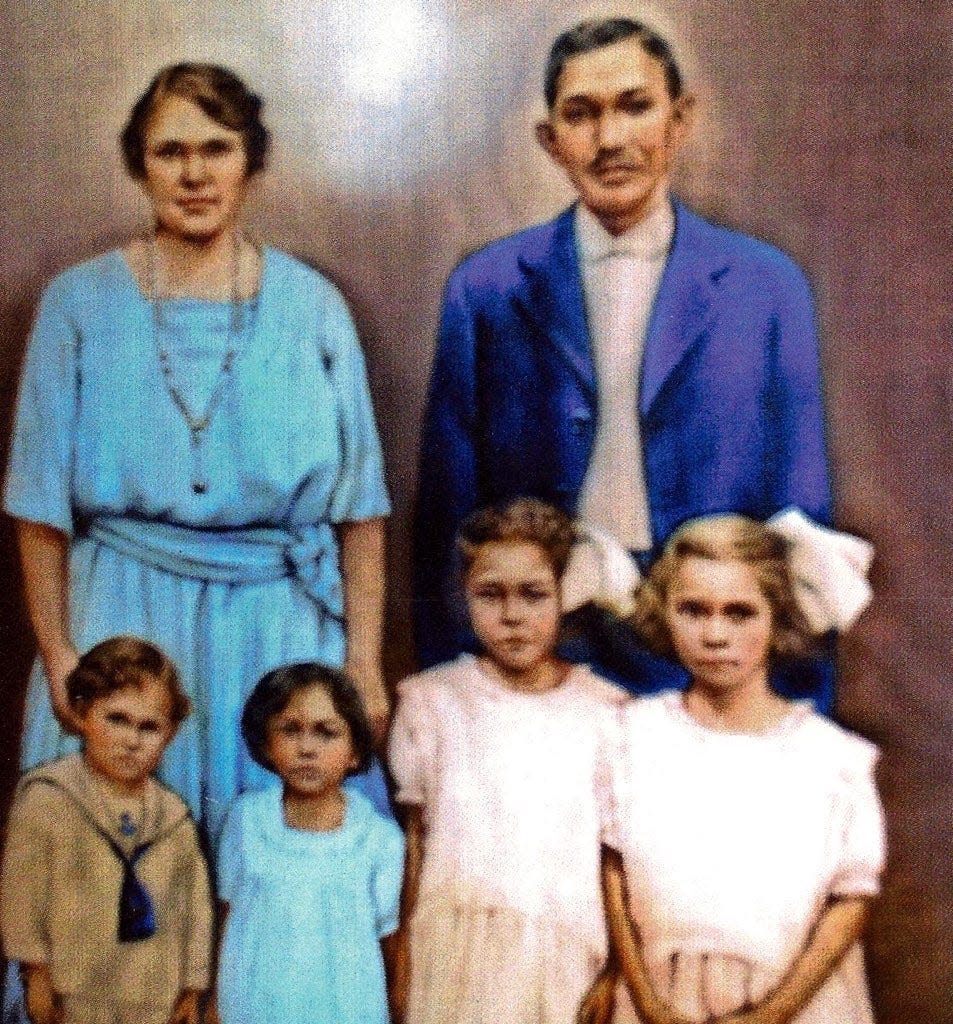
The city of Bartow celebrates the life of Gause along with Dr. Martin Luther King, Jr each January with a parade and festival. There is a monument with both men at the Carver Recreation Center.
“The entire Gause family is deeply honored and appreciative of the Bartow community along with the city and the deacon and steward alliance that they saw fit to honor my father along with the great Dr. Martin Luther King, Jr,” Thurman said for this year’s celebration.
Gause died in 1986. He was married to Alve Gause and the father of Joyce G. Thurman and Beverly T. Davis.
Dr. Joseph A. Wiltshire
1922 – 2005
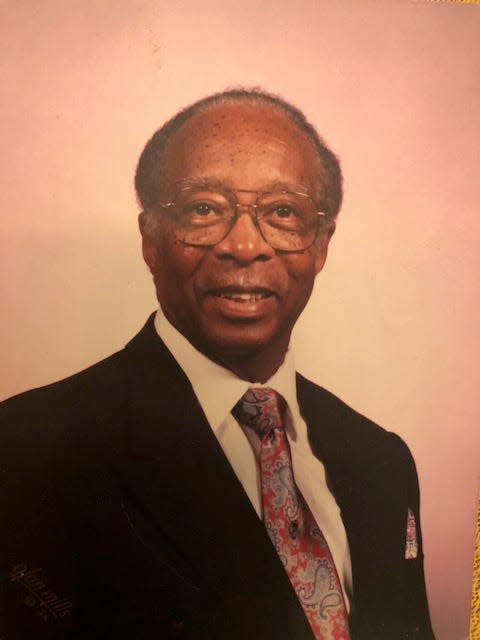
Joseph A. Wiltshire was the first doctor of color in Lake Wales. He opened his private medical practice in 1948.
Wiltshire was born in 1922 in Asbury Park, New Jersey. From 1943 to 1946 he was in the Army Specialized Training Program and reached the rank of second lieutenant. While in the army he graduated with honors from Meharry Medical College in 1946. He began serving as director of student health at Florida A&M University in 1947. In August 1948, Wiltshire relocated to Lake Wales, where he opened his private practice.
After his death in 2005, the Dr. Joseph A. Wiltshire Foundation was formed in Lake Wales. The foundation provides aid to students pursuing careers in the medical field.
“We started it so we could develop medical professionals,” development director Dorothy Wilson said.
Wilson was one of the 2,500 babies delivered by Wiltshire. She also recalls him helping her start her career in pharmaceutical sales at Eli Lily when she wanted to switch her career from nursing.
“He gave me the card from one of his reps out of his offices and I was off to the races,” Wilson said. "I never thought I could do anything besides walking the floor in the hospital.
“It was the most powerful thing that happened to me back in those days,” she added.
Wiltshire’s only son and youngest child, Joseph A. Wiltshire II, remembered the humility and kindness his father expressed.
“He was really the only humanitarian I knew. He took an oath to serve people. If you needed help, he would treat you,” Wiltshire said.
The older Wiltshire would make house calls to save people money. He would also treat people even when they lacked the finances or insurance. Wiltshire said his father would tell people to pay when they can.
“He said he didn’t worry about people owing him money because he would get his riches in heaven,” Wiltshire said.
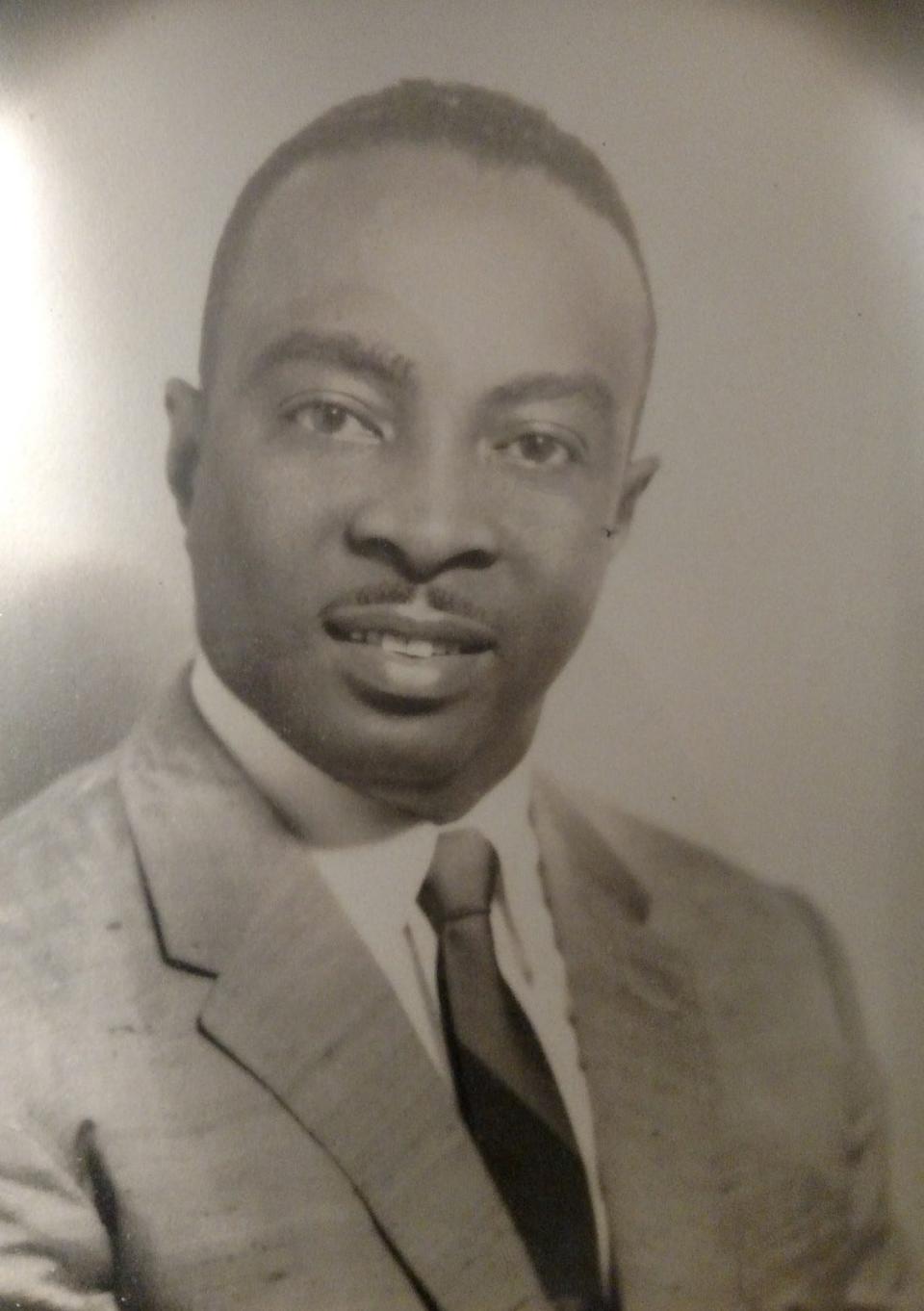
The late Wiltshire was a charter member for the Mu Zeta Lambda Chapter of Alpha Phi Alpha Fraternity. His other memberships include Post No. 213 of the American Legion and the Imperial Twenty-Five Club.
He also received several honors. In 1984, Wiltshire was awarded the Annual Medical Award from the Polk County Chapter of the United Negro College Fund. He was named Lake Wales Citizen of the Year in 1988. In 2004, a street in Lake Wales was named Dr. JA Wiltshire Avenue.
Wiltshire retired in the early 1990s after having a severe heart attack. At the time of his death, he was survived by his wife, Laura Lee Craft and five children.
Althea Margaret Daily Mills
1924 – 2008
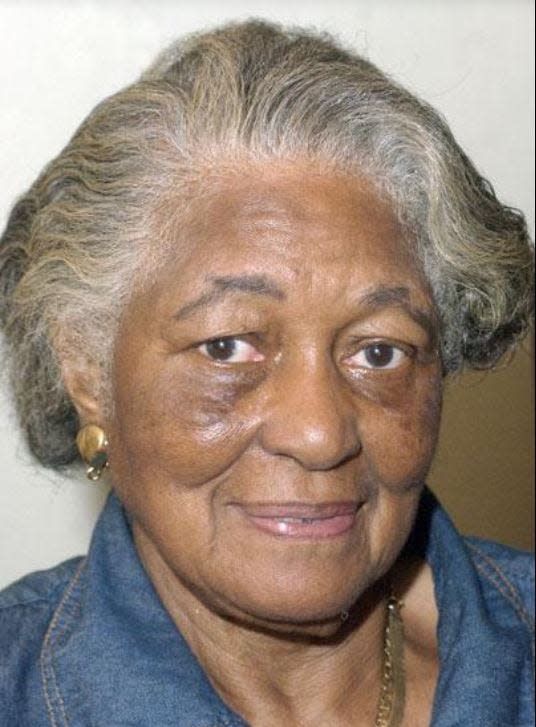
Althea Margaret Daily Mills was a civil rights activist and the first Black career employee of the United States Postal Service in Winter Haven.
Mills started her education in Pughsville before going to live with an aunt in Pennsylvania at the age of 13. In Pennsylvania, Mills was able to attend integrated schools.
In 1963, Mills filed a lawsuit against the Polk County School District, which eventually led to the integration of county schools.
Smith-Fields, the Pughsville native and historian, said Mills was determined in her pursuit of equality. Mills' motivation to file the lawsuit was to allow her son to receive an equal education.
“Our instructors were just as good, but some of my son’s textbooks would go to page 3 and then skip to page 35. You can’t learn like that,” Mills would say over the years.
During her career as a postal worker, Mills was transferred to a station in Eagle Lake in hopes that she would quit. Mills stayed the course and later became the station manager at the Florence Villa Post Office. That station was renamed after Mills in October.
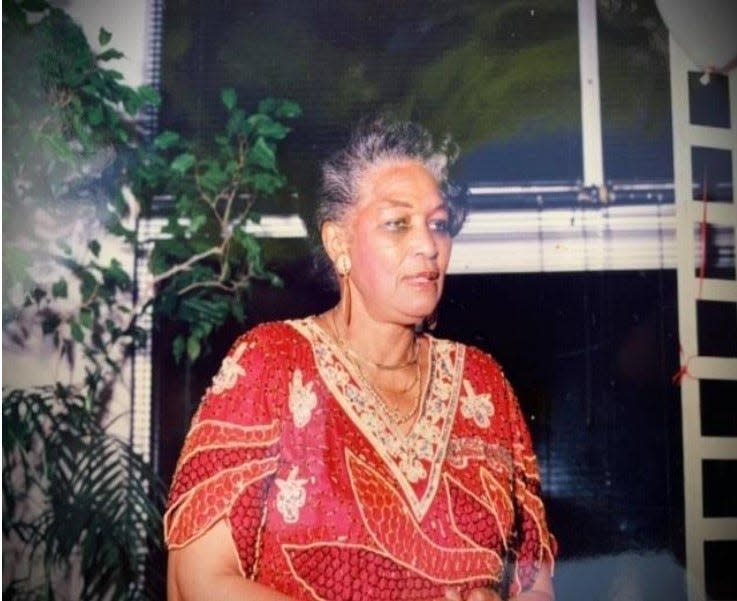
At the ceremony, Rhonda Evans, the first Black postmaster in Winter Haven spoke at the dedication.
“I’m the first Black postmaster (in Winter Haven) so it’s an honor to see this happen,” Evans said at the ceremony. “It’s almost like a long overdue honor. For it to be right in the Florence Villa community it means a lot. I hope people can look at this and have a sense of pride about it and maybe we can start coming together better as a people.”
Smith-Fields is thankful for the work Mills showcased during her lifetime.
“We now celebrate the fruits of her labor,” Smith-Fields said. “I’m a product of her labor, her pursuit for her equality.”
Mills died in 2008 at the age of 84.
Ann E. Darby
1932 – 2021
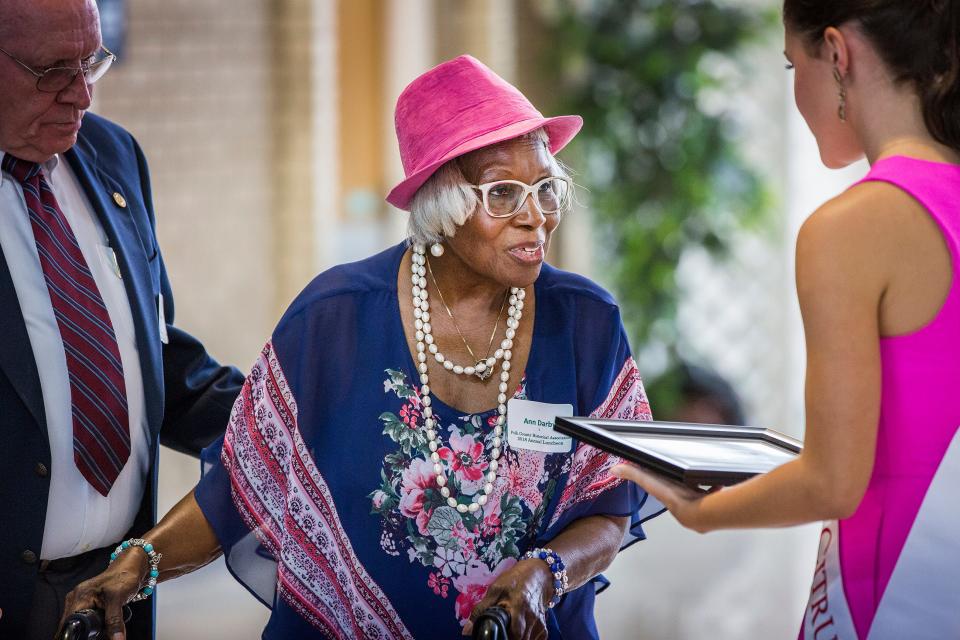
Ann E. Darby is the only African American woman to be elected to Winter Haven's City Commission or to serve as mayor.
Darby graduated valedictorian from Jewett High School and briefly attended Florida A&M University.
According to her biographer and friend Smith-Fields, Darby was married to Joseph S. Darby Jr for more than 65 years. The couple moved to Fort Lauderdale with their son, and Darby worked as a life insurance agent and her husband was an educator.
The family, now including three additional children, moved to Minneapolis so Joseph Darby could complete his master’s degree in education. At the time, it was not an option for African Americans to do so in Florida.
In Minnesota, Darby served in her church, worked with Minneapolis Urban League, and earned a bachelor’s degree in Urban Affairs from the University of Minnesota. She also was appointed to Minnesota’s Peace Officer’s Training Board to help establish and formulate training standards for police officers following a time of racial unrest.
The Darbys returned to Winter Haven in the late 1970s after more than 15 years in Minnesota.
Darby served as the executive director of Haven Community Center. This sparked her to run for Winter Haven’s City Commission. She was elected and served three 4-year terms with one year as mayor in 1989.
“That in itself was an inspiration, and it still is for African American girls and women,” Smith-Fields said. “She represented the African American women well.”
During her time with the commission, Darby established the Winter Haven Community Relations Committee and was the leader in the development and dedication of Winter Haven’s Martin Luther King Jr Park. She also worked on getting affordable housing and transit services for the community.

“Mrs. Darby represented the less fortunate. She was a voice for those that was impoverished, and she was a voice to bring about equality in the community and establishing a relationship within the city and creating dialogue between the African Americans and the city representatives to be inclusive,” Smith-Fields said.
Smith-Fields described Darby as soft-spoken but a “fighter behind the scenes.”
“She opened doors for those impoverished areas of our community to have better access to better economic living conditions,” Smith-Fields said.
Darby was the director of elderly services with the Polk County Board of County Commissioners until her retirement in 2006. She was a member of Zion Hill Missionary Baptist Church and died at the age of 89 in December.
Breanna A. Rittman writes news features for The Ledger. Send your feature ideas to BRittman@gannett.com.
This article originally appeared on The Ledger: Black History Month: 5 Black leaders who changed Polk County

